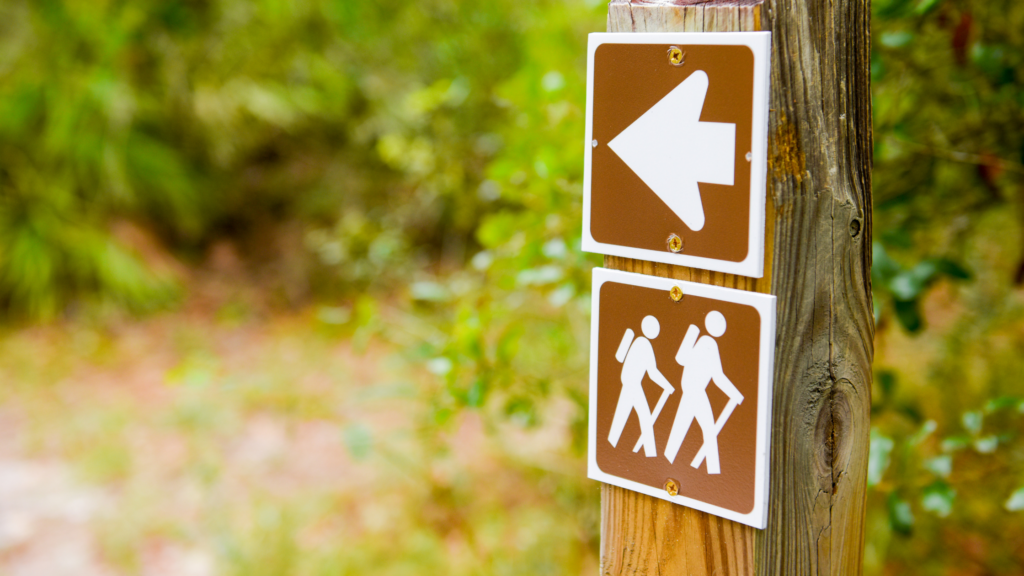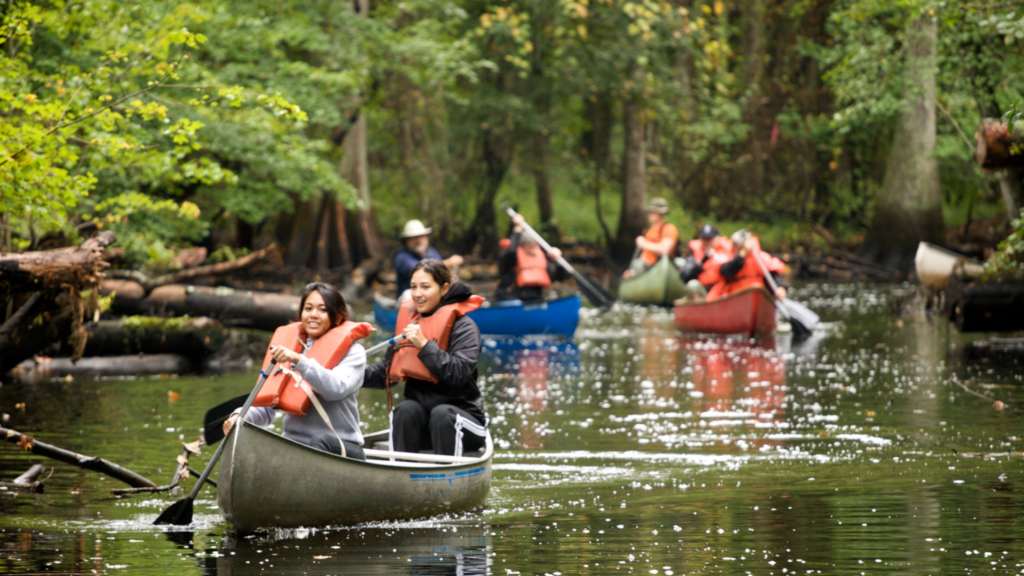From the beginning of his papacy, Pope Francis has emphasized the difference between being a catechist and working as one. “To ‘be’ catechists! Not to ‘work’ as catechists: this will not do. I work as a catechist because I like to teach… But unless you ‘are’ a catechist, it is no good! You will not be successful… you will not bear fruit!” (Friday, 27 September 2013).
He went on to say that being a catechist is a vocation—something that embraces our whole lives. And then he said something that took me a while to figure out: “Being a catechist means witnessing to the faith.”
Witnesses to faith
My first attempt at “working” as a catechist (not “being” a catechist) was in high school, substituting for a fourth-grade teacher who had a family emergency. I was terrible. I certainly did not bear fruit. I’m lucky I didn’t have fruit thrown at me!
What I didn’t understand back then was that my role as a catechist was not just to teach fourth graders. My role was to be a witness to my faith. Instead of trying to teach those kids about the Lord’s Prayer (which was on the lesson plan the teacher had left me), I should have shared my prayer life with them.
I didn’t do that back then because I was afraid. I would have had to reveal how my prayer life was not very consistent. I might have had to reveal my doubts that God really listens to my prayers. I may have had to admit my lack of trust that God would really “give [me] this day [my] daily bread” or my failing to “forgive those who trespass against [me].”
I fled from that “work” and decided that I would never be a good catechist. Then, in my 20s, I was introduced to the catechumenate. By then, I knew my calling was to be a liturgist, and I dove headfirst into catechumenate ministry, staying very safely inside the rites and rituals and very far from the catechetical side of things.
Pope Francis says over and over again that we have to get out of our comfort zones. When we stay safely within our comfort zones, we are putting ourselves at the center. We have to work hard to overcome that nice, safe, warm feeling and be willing to go out to encounter others.
Go out to encounter others
But the Holy Spirit has a way of nudging us beyond our comfort zones. In my 30s, after moving to San Jose, California, I joined a predominantly Spanish-speaking parish, even though I didn’t know the language. I attended the one English Mass, and the pastor, knowing my background in liturgy, invited me to an Advent planning meeting. He was unexpectedly called away, and suddenly, I was left with six Spanish-speaking parishioners, all expecting me to lead because the pastor had introduced me as a liturgy “expert.” Unable to communicate, I realized that catechesis goes beyond teaching; it is a call to live and share the gospel. Somehow, I was able to get the group to share their Advent memories and their reflections on the Advent readings. That, in turn, led to a beautiful, spirit-filled Advent season. And in the end, I spoke very little; their stories shaped the celebration.
Pope Francis says over and over again that we have to get out of our comfort zones. When we stay safely within our comfort zones, we are putting ourselves at the center. We have to work hard to overcome that nice, safe, warm feeling and be willing to go out to encounter others. Pope Francis teaches us “not to be afraid to pass beyond our comfort zone and to follow God because God is always pushing, pressing forward.”
Jesus walks with us
I told you before I was afraid to do that. And for good reason. If the comfort zone is “safe,” that means outside the comfort zone is “unsafe.” I could get hurt out there. Pope Francis knows that and still won’t let me off the hook. He said:
If a Christian goes to the streets, or to the outskirts, he or she may risk the same thing that can happen to anyone out there: an accident. How often have we seen accidents on the road! But I am telling you: I would prefer a thousand times over a bruised Church than an ill Church! A Church, a catechist, with the courage to risk going out, and not a catechist who is studious, knows everything, but is always closed: such a person is not well. And sometimes he is not well in the head….
What I have learned on this long journey of finally living into my vocation as a catechist is that the “outskirts” is where Jesus is. Jesus doesn’t say, “Get outside your comfort zone, and good luck with that.” He says, “Go, for I am with you.” If we go out to share our lives and our faith, to bring the gospel with love, Jesus walks with us, going ahead of us to get there first. No matter how far outside our comfort zone we are called to go, Jesus is already there. The pope says: “Jesus is waiting for us in the hearts of our brothers and sisters, in their wounded bodies, in their hardships, in their lack of faith.”
I know many of you figured this out long before I did. But all of us can get stuck in a rut (which is another way of saying “comfort zone”). So let’s support one another and urge one another to stop “working” as catechists and get better at “being” catechists. Let us, as Pope Francis says, “have the audacity to mark out new paths for proclaiming the Gospel.”
If you would like to explore more deeply the vocation of catechists to go to the outskirts, join us for our next training webinar: Become an Evangelizing Parish: The First Stage of the Catechumenate Process on Thursday, Sept. 26, 11am PDT.
How audacious are you?
Would you be willing to share one audacious thing you have done to be a catechist? Your example can help inspire the rest of us to go out and open more doors. Please share your story in the comments section below.
See all the articles in this series
If you would like to read the entire series, click below:



















At the conclusion of Easter Vigil Mass I put some of the Holy Water used to Baptize in a small plastic container and present it to each newly Baptized with their name and date of there Baptism.
A thing, maybe it is audacious thing, is that in our Together As One Area Catholic Community, we have year-round OCIA. We call our ministry Journeying in Faith. OCIA is a part of the ministry if and when the seeker decides to go through the rites for full initiation. The start date is the day the seeker makes a decision to inquire about growing in Catholic faith and the end date is usually after a full year in the ministry or whenever the seeker chooses not to come anymore after that. The Holy Spirit guides us with awe and wonder through the Word and prayer to accompany each seeker on their unique journey to a deepening relationship with our Lord, our Savior
Hi Bernie. I love how you’ve developed a flexible, year-round process that adapts to each seeker’s individual journey. Sounds like a great way to welcome people into the faith community. Keep up the good work!
I like taking the adults and children Catechumens and Candidates outside the “classroom” environment. The first time was taking them mid-morning on Holy Saturday for a walk in the woods about 3/4 of a mile to a sandy beach on the creek. Along the way, I asked them to gather a stick which for some reason reminded them of themselves and to carry that chosen piece of wood to the creek. Once there we laid out our blankets and sat or stood beside the creek with the water running softly. We read the scripture of Jesus in the Desert and they were asked to imagine what that experience must have been like. They described the discomfort he must have felt with no water, hot and stickiness of sand on their bodies just as they were experiencing on the creek bed sand. They really delved into the environment discomforts, along with lack of food, shelter, coldness of night, etc. Then, the mental and spiritual resolve Jesus exampled necessary to overcome the temptations of the devil. They each shared why they picked their stick. Those sticks were chosen for different reasons. One was because it was dark and they had felt that way most of their lives until joining RCIA. Another was because it branched out in different directions as their life had done with their choices. And then another would say this stick is straight and it is like me because I never stepped out of my comfort zone. So many reasons and they put their heart and soul into describing themselves. I gave each a piece of sandpaper and asked them to spend a few minutes sanding their stick. Once completed, they were asked to share what they saw. The answers were varied. One described how the wood became lighter inside, another commented on the beauty of the grain and then another said how the darkness had left. It was then they realized that Jesus is our sandpaper, smoothing us down and perfecting our souls. Sand being the sign of Jesus in the desert and in our lives and how by praying to Him how He always perfects us.
That day on the sandy bed of the creek we broke bread together having lunch, praying, laughing and crying. We were catechizing one another with our hearts not with our minds. And, that night they received their sacraments at Easter Vigil.
Hi Deborah. Thank you for sharing your story about your approach to catechesis. Taking the catechumens and candidates into nature to physically and emotionally connect with Scripture is a cool idea. Thanks for all the great work you are doing.
Hi Nick,
Great article. I will definitely share this with our team. I know for a fact that the Holy Spirit has “nudge” me outside of my comfort zone. As you mentioned previously, we are all called to be catechist. It’s not what you know about the faith but living it on a day by day basis and being an example to others.
Thanks Ronald! It is always good to hear from a fellow “nudge-ee.” Blessings on your ministry.